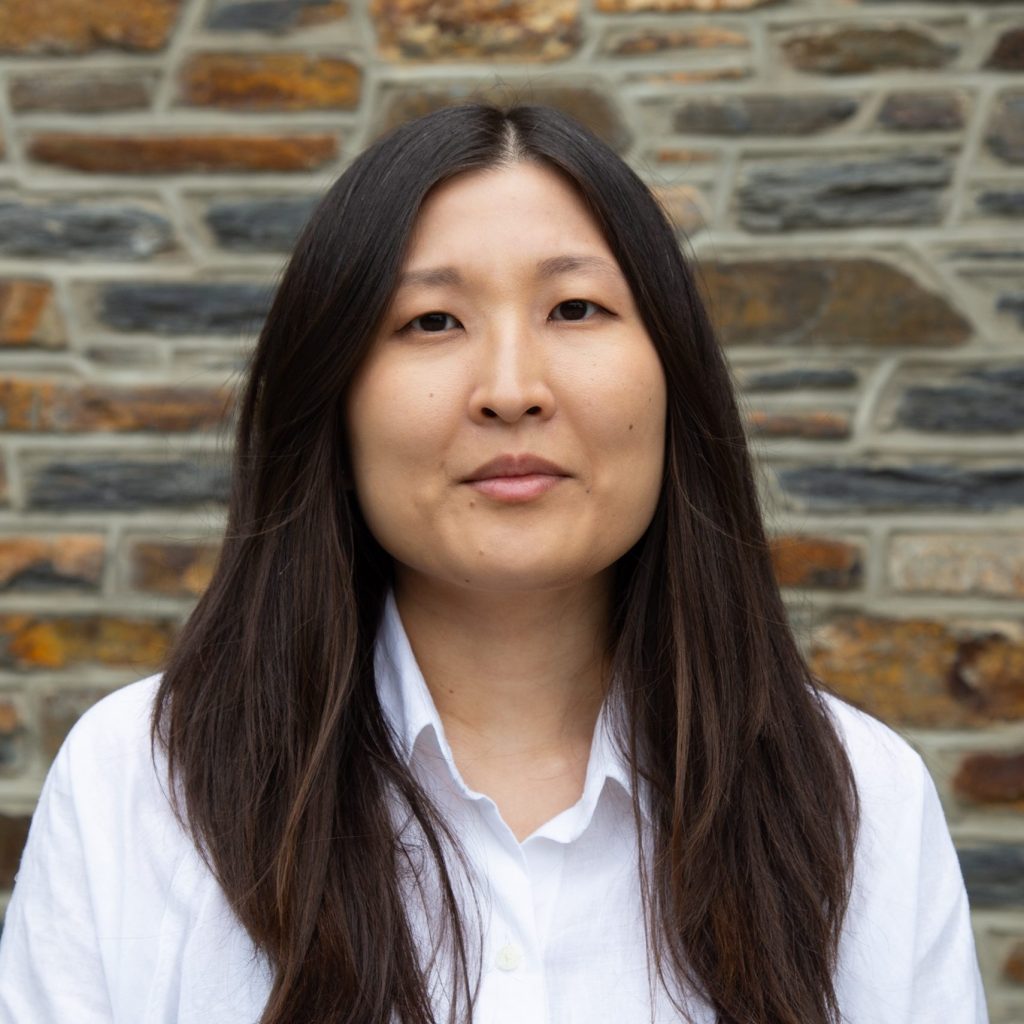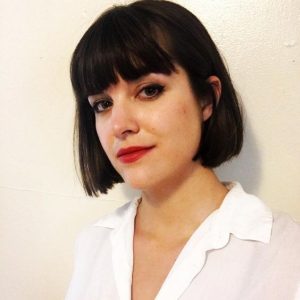By Catherine Lee-Cates

In April, I joined Learning Innovation & Lifetime Education (LILE) as a Learning Experience Designer. However, I am neither new to Duke nor to LILE, having been a PhD student in English at Duke from 2016 to 2023 and a Bass Digital Education Fellow from 2022 to 2023. The Bass Digital Education Fellowship was absolutely key to my transition from academia (though I am still close to it in my new role) and the start of my new career, and I write with the hope that my experience will be illuminating for others considering the fellowship.
I applied for the Bass DEF in my sixth year of the PhD program, which was the year I decided not to pursue a typical academic career. Having made up my mind on that front, I was trying to figure out what I could—and importantly, wanted to—do after the PhD. The Bass DEF, as I saw it, was a valuable opportunity to explore this question in the company of experienced professionals and expand my skill set.
After being awarded the fellowship, I was connected with the Learning Experience Design team to collaborate on two projects: Drones for Environmental Science and Open Design. During the Fall 2022 semester, when my fellowship took place, I became a fully contributing member of the Learning Experience Design team, carrying out various tasks from reviewing and developing course content to ideating solutions to design challenges. Overall, my fellowship experience was very positive for many reasons:
- I was intrigued by the projects I worked on. Drones and equity-focused design methodology were both far removed from my area of study (Romantic-era literature) and completely new to me; I had a lot of fun learning about them.
- I enjoyed being part of a team. The life of an academic, particularly in the humanities and literary studies, is often characterized as solitary, and while I don’t think that is always necessarily true, my own experience—especially with my dissertation writing years coinciding with the pandemic—had been very isolated. The fellowship, on the other hand, had me working with team members toward a shared goal, supporting one another and brainstorming and solving problems together. I found this collaborative environment refreshing and invigorating, and began to envision myself in this kind of work setting for the future. While my time in academia had led to immeasurable intellectual and personal growth, I saw that a more team-oriented work environment might be a better personal fit.
- The fellowship introduced me to learning experience design as another way to engage in educational work. While I had a wonderful time teaching at Duke and remember my former students fondly, I had sometimes struggled with the onus that teaching puts on the instructor as an individual. Learning experience design relieved this pressure by allowing me to view education from a more holistic angle, focusing on the learner and all the elements that come together to create an optimal learning experience rather than singularly on the instructor’s performance.
- The fellowship inspired an interest in the potential of digital education as a mode of expanding access to education. I found myself genuinely motivated by the idea of helping as many people as possible gain a new skill or knowledge that could empower them in their respective journeys, whether academic, professional, or personal.
To some, it may seem self-explanatory that I now work at LILE as a Learning Experience Designer. However, as someone who, as a PhD student at career and professional development events, often felt lost and struggled to understand how one opportunity led to the next, I want to articulate in more detail how the fellowship helped my job search:
- The fellowship equipped me with experiences and skills that made me a stronger and more well-rounded candidate for the job market, such as collaboration, communication, content development, project management, and proficiency with various tools. While many of these skills are certainly also honed through aspects of doctoral training, it was beneficial to have something other than research and teaching to demonstrate my versatility during the job application and interview process.
- The fellowship provided me with a network. I cannot emphasize enough how valuable this was to me as someone who had always found the concept of networking incredibly challenging to grasp and even harder to put into practice. I had often felt awkward and inauthentic in my previous interactions. The relationships I formed with the Learning Experience Design team members, however, felt genuine. I would have been comfortable reaching out to any of them for support if I had ever needed it for a different opportunity.
- I applied for the Learning Experience Designer position when it became open and went through two rounds of interviews before receiving an offer. There are two contributing factors from the fellowship that I believe worked in my favor. The first is that due to my experience, I had a concrete understanding of what the LXD position entailed and what a fantastic, unmissable opportunity it was. I wrote my résumé and cover letter with utmost care and prepared diligently for the interviews. The second is that again, because of the fellowship, I could point to examples of my work that had contributed to the success of projects on the LXD team.

My experience is not unique. Many former Bass DEFs have gone on to find fulfilling careers outside of academia. Emmaline Eliseev, a 2021-2022 fellow, is now a User Experience (UX) Researcher at RealPage, and Katya Gorecki, a 2019-2020 fellow, currently works as a Lead UX Researcher at the NWEA Division of Houghton Mifflin Harcourt. When asked about her experience, Gorecki shared: “My project through the Bass Digital Education Fellowship provided hands-on experience that directly connected my doctoral work to the types of projects I aimed to pursue in my career in UX research. This experience was a substantial part of my early UXR portfolio and played a crucial role in securing my first position, where my academic research background enabled me to progress quickly.”
I am loving my new job and post-PhD life, and very grateful to everyone involved with the Bass Digital Education Fellowship program for making this possible. Learn more about the Bass Digital Education Fellowship.

